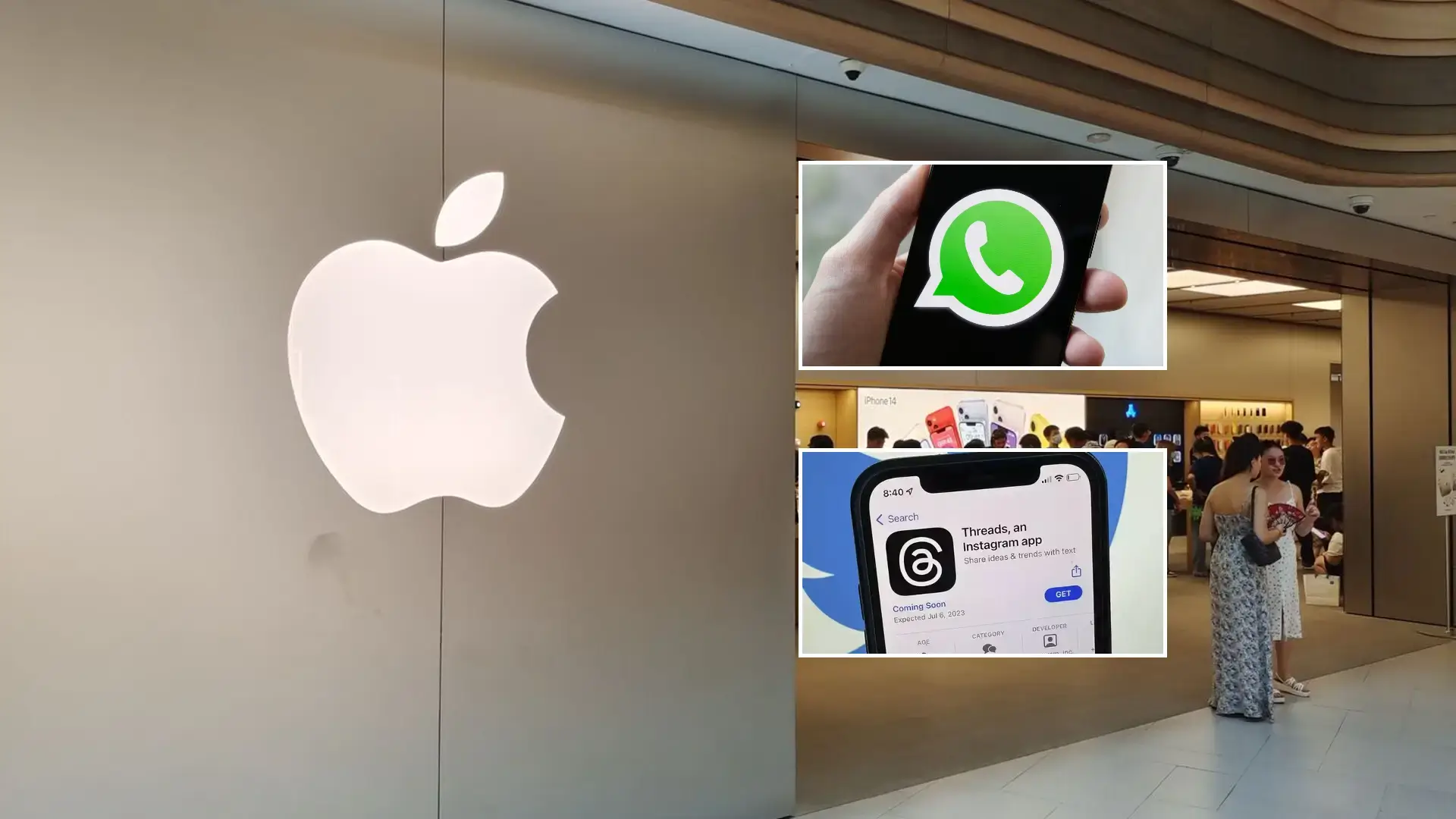Apple, the multinational tech giant, recently took down WhatsApp and Threads from its Chinese App Store. This move came as a result of a directive from the Chinese government, which expressed national security concerns.
Apple’s decision to remove WhatsApp and Threads was not an isolated incident. Two other foreign messaging apps, Telegram and Signal, were also taken down from the Chinese App Store on the same day, according to app tracking firms Qimai and AppMagic.
This suggests a growing intolerance by China’s central government towards foreign online messaging services that are beyond its direct control. It also signifies a tighter leash for Apple in China, which is Apple’s most crucial market outside the United States.
WhatsApp and Threads are both owned by the parent company of Facebook, Meta Platforms Inc. Facebook and another Meta property, Instagram, are both prohibited in China.
The removal of these apps was mandated by the Cyberspace Administration of China due to their national security concerns. The Chinese government believes these apps contain political content that includes negative sentiment towards their President, Xi Jinping.
As a company operating in China, Apple is obligated to follow the laws of the country, even if they are in disagreement with them. Apple CEO Tim Cook has, in the past, been pictured in Cupertino, California, holding an iPhone 14 in 2022.
Apple’s compliance with the Chinese government’s demands to remove certain apps from its App Store has sparked concerns. Critics argue that the tech giant is bowing to Beijing’s censorship dictates.
China has a stringent censorship and regulatory framework known as the “Great Firewall”. This framework is heavily enforced by the Chinese government on domestic internet usage.
Despite the ban, Chinese internet users have managed to bypass the restrictions through the use of Virtual Private Networks (VPNs). This allows them to circumvent the country’s Great Firewall and access the banned apps.
Data cited by The Wall Street Journal shows that Instagram, Facebook, YouTube, and WhatsApp have been downloaded from Apple’s App Store over 170 million times collectively over the past decade. This indicates that many Chinese internet users continue to use these platforms despite the government’s restrictions.
The Chinese government’s rigid internet regulations have significantly impacted the social media landscape in the country. Popular sites and apps such as Google, YouTube, Pinterest, Twitter, Tumblr, Blogger, and Snapchat are all blocked in China.
Apple has faced criticism in the United States for its compliance with Beijing’s censorship tactics. In 2021, The New York Times reported that Apple agreed to store the personal data of its Chinese customers in a database controlled by a state-owned company.
Apple heavily relies on China, as many of its suppliers who manufacture the components of its top-selling devices like the iPhone, iPad, and AirPods are based in the country. However, Apple has made moves to shift parts of its supply chain to other Asian countries such as Vietnam and India in recent years.
Tim Cook, the CEO of Apple, stated earlier this week that the company was considering establishing a manufacturing hub in Indonesia. This move, if realized, could decrease Apple’s dependence on China and diversify its supply chain further.




